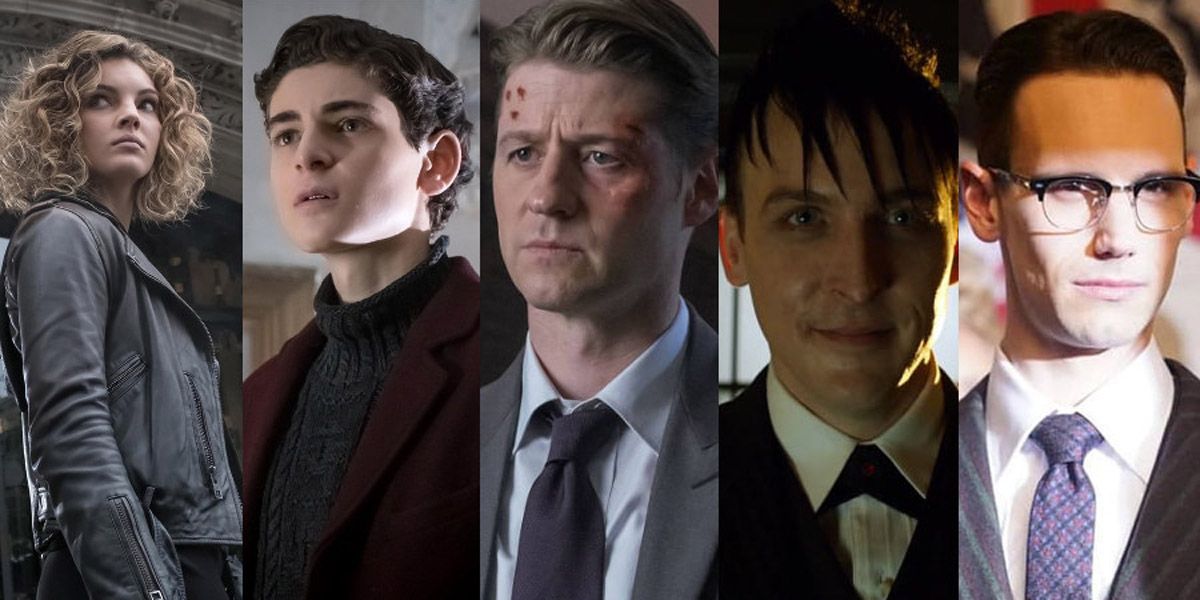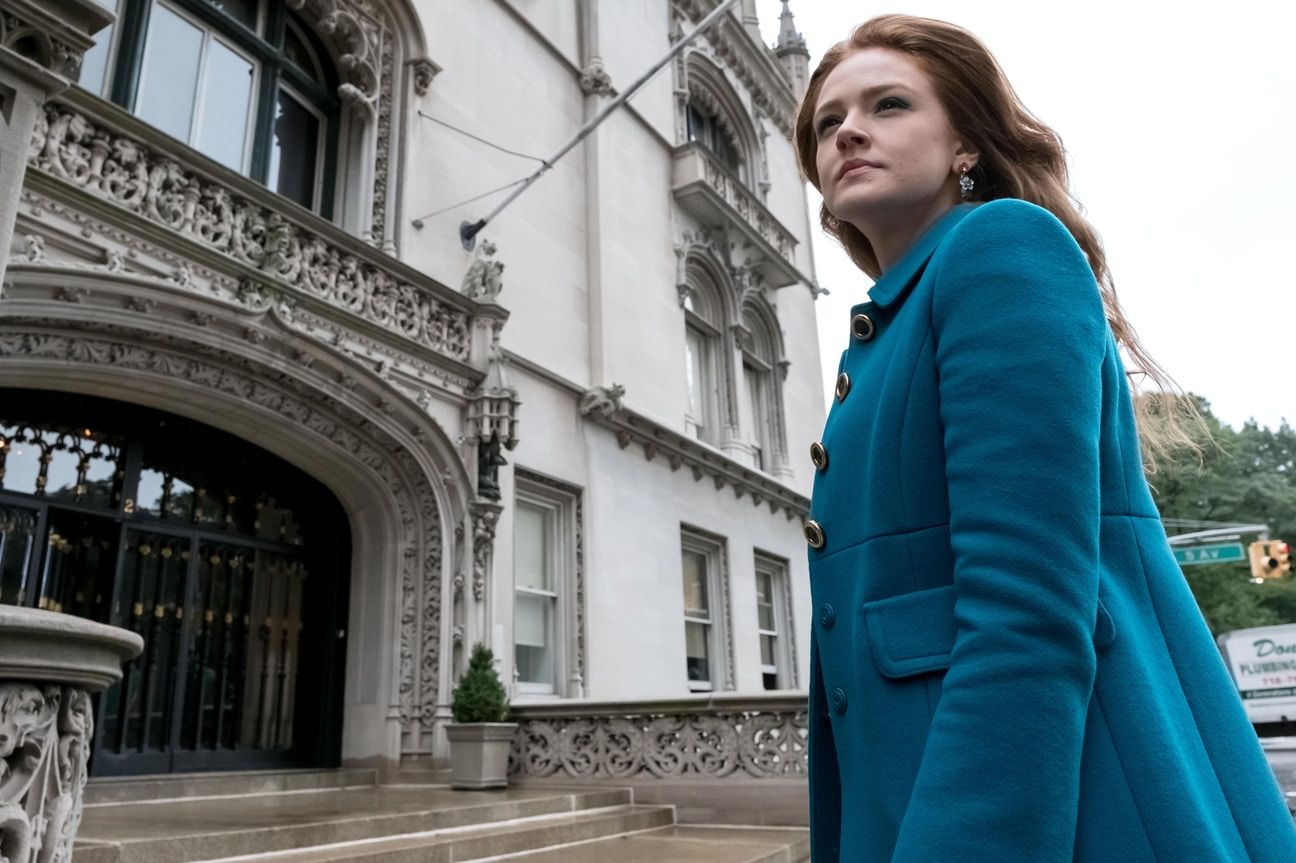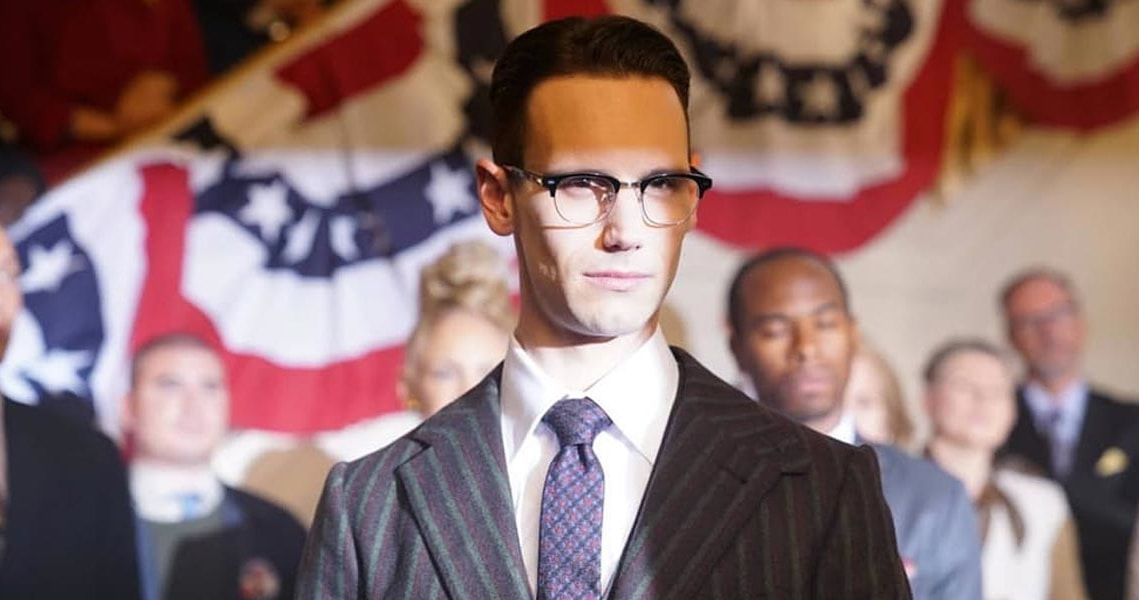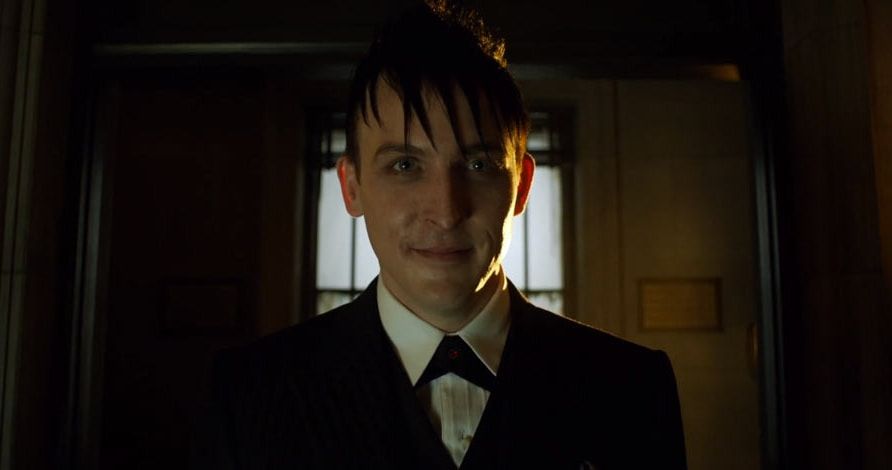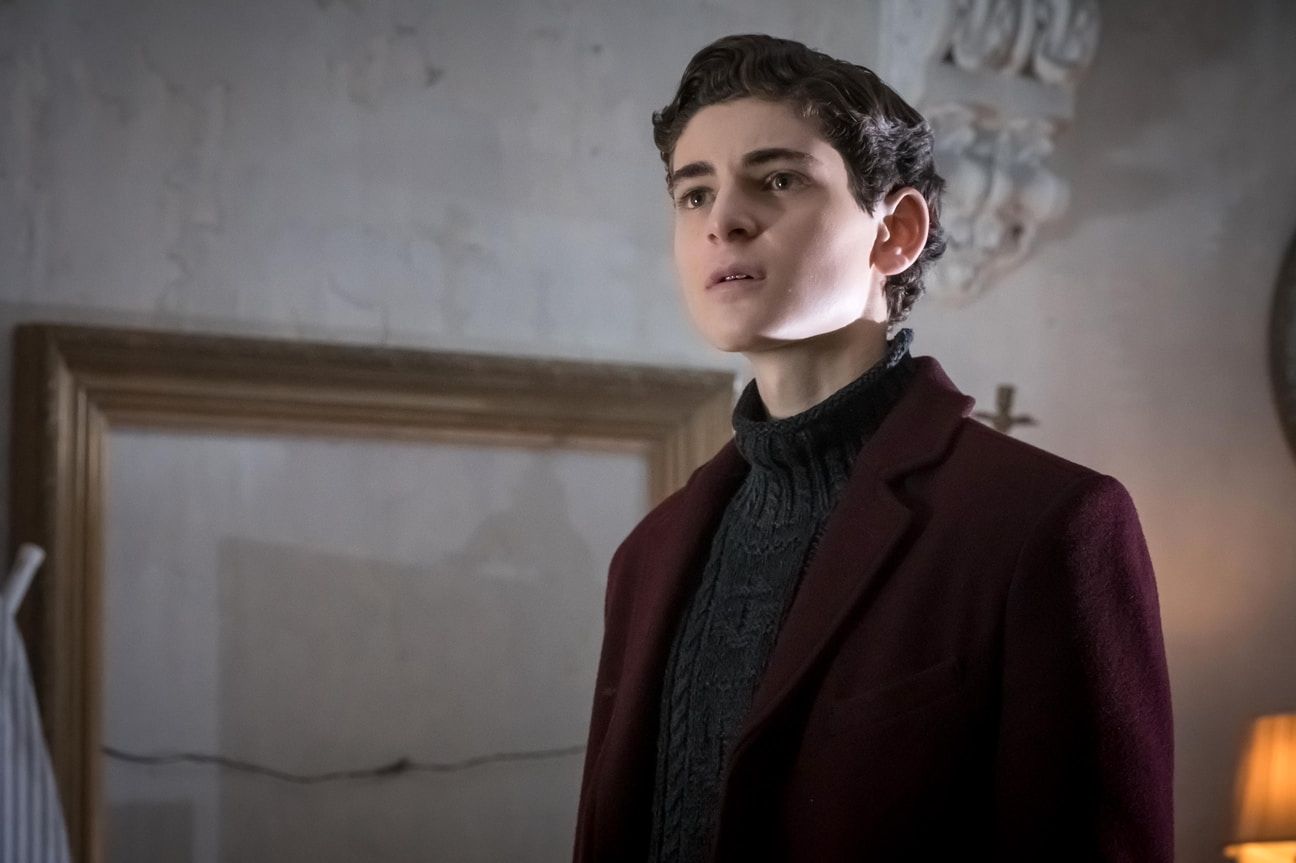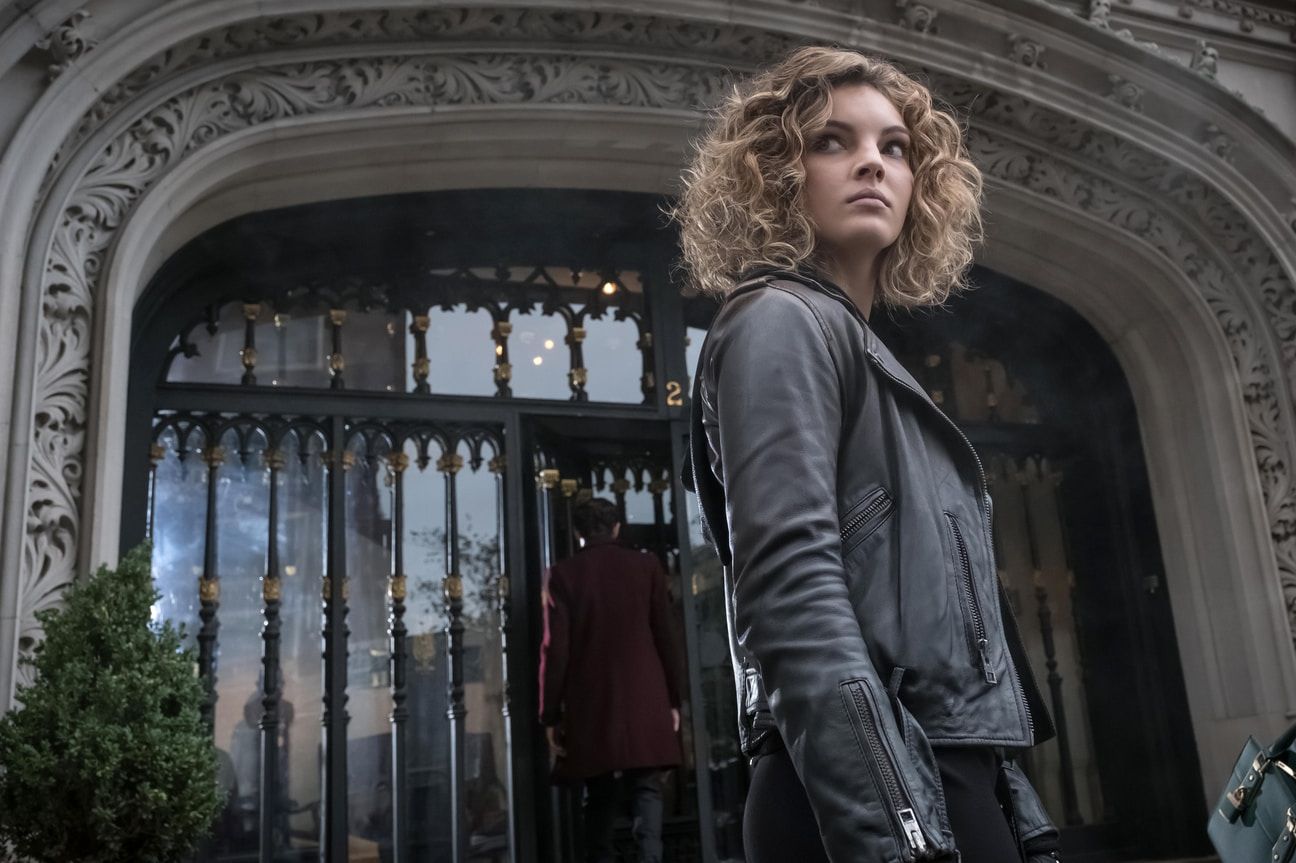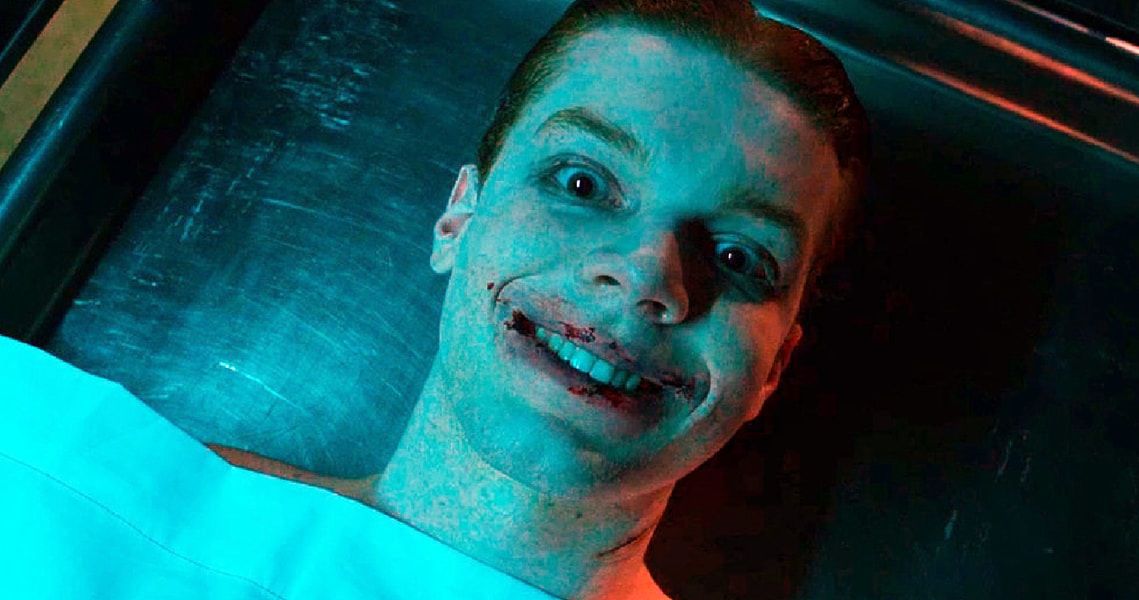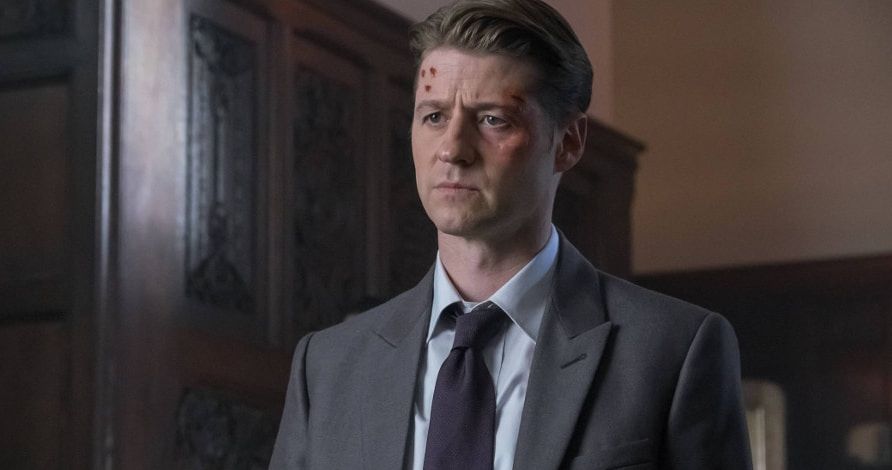Fox's "Batman before Batman" drama "Gotham" returns tonight with a number of wild plots in the middle of the action. Jim Gordon has killed his love's husband. Ed Nygma is looking to go to war with the Penguin who loves him. Bruce Wayne is backed against a corner with the Court of Owls.
RELATED: "Gotham": Jerome Has Something to Share in Creepy New Promo
The stories are a massive improvement on the grim, directionless procedural the show was in its first season, but before fans dive back in for another three months of pure "Gotham" ridiculousness, it's time to take stock of how well the show has accomplished its stated goals in adapting the Batman universe. Namely, how good are the vaunted origin stories the producers promised to deliver with its premiere?
Because "Gotham" can't be what it is once Bruce Wayne dons the cape and cowl of the Dark Knight, the attraction to the series was supposed to be seeing these heroes and villains on their way to becoming four-color famous. CBR looks over how well eight major players in the series have fared in their own origin stories. Does the long trail to costumed crusaders work for the likes of Bruce Wayne and Jim Gordon, or does pushing past the game of "When will they turn?" work out better for the likes of Ed Nygma and the Penguin? Read on to find out.
Harvey Bullock
In almost any way you can measure it, "Gotham's" take on the Gotham City Police Department's gruffest cop embodies both what works and doesn't about the show. And that's mostly down to the wasted potential of Donal Logue in the role.
An experienced and acclaimed actor from indie films, genre movies and a handful of good-to-great TV series that never made it all the way (RIP "Terriers"), Logue felt like perfect casting for the sardonic Bullock when "Gotham" was announced. But after a mostly nonsensical "bad cop turns good" arc in the first season, the producers have found absolutely nothing to do with the character outside the occasional snarky aside or last-minute burst through a door. Sure, when the show's Bullock was introduced, viewers were offered a sliver of character development with the idea that he kind of cares about Jada Pinkett-Smith's Fish Mooney. But these half-starts never see any follow through that makes Bullock feel like a fully character in the show.
Compared to the comics, where the detective is definitely a bit player but is at least granted the occasional spotlight story like the classic "A Bullet for Bullock," the wasting of an actor of Logue's caliber is even more depressing. With talent like that and a character with so much potential for original development, when will the writer's realize that they can do something with Harvey?
Ivy Pepper
In "Gotham's" early promotional push, the proto-Poison Ivy known as Ivy Pepper felt like a character tacked on at the last minute in order to put another face on the billboard. From there, the preteen waif didn't get much else to do.
Through most of the show's initial seasons, Ivy showed up only occasionally as either a warm body for Selina Kyle to talk to or, in the rare instance, as a witness in the Wayne murder case whose information went nowhere. Neither of these plot points seemed to be leading on a path to the mind-controlling femme fatale that fans know and love from the comics. So in the meantime, viewers had to be content with the occasional greenhouse scene and an ugly green sweater as the only indicators that Ivy Pepper would ever turn Poison.
RELATED: "Gotham" Introduces a Mysterious New Mentor For Bruce Wayne
This season, however, things took an interesting yet still unsatisfying turn when the producers opted to age up Ivy with a sci-fi twist that saw the character recast by actor Maggie Geha. We have to give kudos to the show for avoiding what could have been some highly inappropriate scenes considering the fact that this older-looking character has weird pheromone-manipulating powers, even though she's mentally 13. But beyond that, it seems the series skipped past any kind of worthy origin. This new Ivy has PhD-level knowledge of botany that no amount of fussing with plants could have instilled in her, and she's left with little motivation outside "adult men are dumb." In practice, this woman has the right look and right powers to be Poison Ivy, but without a strong character history or just a plain ol' story, it's another swing and a miss.
Edward Nygma
Perhaps no character on "Gotham" has come further in three years than the future Riddler, Ed Nygma. In the pilot, Cory Michael Smith's police scientist was the kind of presence that even the series' most ardent defenders wanted to punch in the face. Back then, it seemed the producers' idea of pushing him toward a supervillain origin was having him say "riddle" every seven words or so.
But the character soon rebounded with an over-the-top, yet ultimately engrossing, "bad romance" plot. When Nygma turned his unrequited crush on Kristin Kringle into a plot to murder and replace her abusive boyfriend, the show pushed his nebbish character in new and scary directions. They followed up that plot almost immediately by turning Nygma into the Riddler in every way but name only as he left a series of cryptic crime clues in order to shake Jim Gordon off his trail. In the end, Nygma was caught before he could take on his more famous code name( and the snazzy question-mark suit to match it), but otherwise the show offered a serviceable if incomplete origin journey.
And that's where things finally got interesting! Now that he's been cut loose completely from the waiting game of "When will Ed transform into the Riddle?," the character has been far more fun to watch. Whether he's taking out petty revenge on the GCPD as the mayor's chief of staff, puzzling over the appearance of the murdered Kristin's doppelgänger (we're still trying to figure that one out ourselves) or plotting revenge once again on Oswald Cobblepot for killing his second girlfriend, Smith's Nygma is finally a charming and scary screen presence whose future is enticing, no matter whether he ever dons a purple mask.
Oswald Cobblepot
From the jump, the only character on "Gotham" to earn his comic book alter ego onscreen was also the most acclaimed. And while it's fair to say the Penguin's rise to power has been one of the more consistently entertaining aspects of the series, it's important to look at why the character arc works.
Much like Nygma, Oswald Cobblepot's story closely resembles his comic book roots, but ultimately goes beyond them rather than teasing the audience with Easter eggs. Oswald is an outcast who discovers he has roots in high society; he's physically damaged in a way that earns him the scorn of his fellow mobsters; and he's a conniving, two-faced power player who is equally adept at cruel criminal enterprises and playing the public as patsies in a run for high office. Honestly, at this point the only thing the writers could do to make actor Robin Lord Taylor's story more like the Penguin of the comics is to tell him to gain 100 pounds and say "Wak Wak!" more.
RELATED: The Penguin Sees His Father's Ghost in New "Gotham" Clip
But once the general outline of Penguin's story was completed on air, the show was forced to come up with new things for him to do. Sure, parts of his story like losing his killer instinct in Arkham or seeking vengeance on his father's kooky, murderous in-laws had groan-inducing moments. But each of those storylines had the attraction of being real mysteries; viewers are rarely able to guess the ending of Penguin's stories like they are so many others. And the very best change hit just recently as the character was revealed to be queer – the kind of 21st-century twist that not only adds some much-needed diversity to the Batman universe but also sets up the most intriguing story for the back half of Season Three in the brewing war between Penguin and Nygma. If "Gotham" wants to draw in more fans, this is the character it needs to emulate.
Bruce Wayne
The reason a preteen version of the Dark Knight works in almost any adaptation of the Batman story usually boils down to a simple fact: We only see the kid for about five minutes, and most of that is just him crying. It's difficult for any child actor to bring the complex emotions of the world's greatest detective to the screen, but at least David Mazouz has been improving in the part.
The first season or two of "Gotham" was less a story about Bruce Wayne and more one that revolved around him as an idea. Kicking off the series with the mystery of who killed Bruce's parents and why seemed like a no-brainer, but the young billionaire had little substantial impact on that story for more than two dozen episodes. Absent that, you're ultimately watching a story about a little boy's grief, which is more suited to HBO's "The Leftovers" than to a comic book drama. From there, "Gotham" delivered fits and starts focusing on Bruce's own investigations into his father's past and the roots of his parents' murders, but those haven't been particularly memorable, and they certainly haven't given the impression that this kid will some day be the most bad-ass hero of them all.
Thankfully, things have been looking up for Bruce in Season Three. From his attempts to rattle the cages at his family's company to the cat-and-mouse game he's playing with the mysterious Court of Owls, the audience has begun to see the parts of the Wayne character that are equally charming and cunning. It's a far cry from the Dark Knight yet, and there's still the lingering question over whether this Bruce will ever follow his comic roots and travel the world to train up. But for now, at least the show is pushing him on the right path.
Selina Kyle
"Gotham's" version of Selina Kyle prefers to be called Cat, and she definitely steals things from people. That is both as close as you can get to being a young Catwoman, but also somehow tragically short.
Since the beginning of the series, this Selina has been a major player in almost all of the storylines (much more so than Bruce), and there's nothing overtly awful about Camren Bicondova's performance. But mostly the show just provides opportunities for her to get caught lurking where she isn't supposed to be, and then tell anyone trying to help her that she's "Totally fine. Nothing wrong here. I have no emotions or anything. Shut up." It's pretty flat work for a character who's supposed to be heading in the direction of worldly con artist and Robin Hood-esque heart-breaker.
RELATED: Can "Gotham" Put Gordon in a Worse Spot For Joker's Rebirth?
And despite a lot of false starts -- remember when she hung out with that mobster who had a whip for, like, two episodes in Season One? -- Selina has never had any kind of solo story arc that points her further toward Catwoman status. However, maybe that's changing. With the cliffhanger arrival of her mother in the midseason finale, we're finally getting a bit of story that seems unique to Selina in a way that could develop her character. Combine that with the fact that her awkward middle-school romance with Bruce has finally been watchable this year, and there's a better than ever chance that this take on the character could sink its claws into the Catwoman legacy.
Jerome and The Jokers
In casting about for a way to use Batman's most famous (and famously origin-proof) villain in a series centered on origins, "Gotham" tried just about everything and failed at most of them. At the start, the series would drop odd failing stand-ups in to the background of random episodes to highlight the idea that any of them could turn into the Joker. That died off quickly and mercifully. Then the show played with the idea of the Red Hood gang that could possibly give some insight into the criminal background of the Clown Prince, but the gang proved just another set of idiots with guns.
Things finally turned around for many fans with the arrival of Jerome, the circus orphan who went mad with precisely the right kind of unhinged cackle. The character (and actor Cameron Monaghan) proved so popular with viewers that producers brought him back at the start of Season Two in a much more Joker-ish role leading a murderous gang of Arkham escapees. But in a rare moment of smart thinking, "Gotham" killed off the maniac rather than run him into the ground – a finish that potentially set up the idea that his particular brand of madness was infecting the city and setting up an eventual arrival of the "real" Joker.
But in this new year, "Gotham" is going back to the Jerome well again. While the show's general wackiness has already established that bringing a character back from the dead is no problem, the question viewers are left with is whether this is really necessary. The more we see Jerome, the more he becomes the show's definitive version of Batman's greatest foe. And if that's the case, this series will have gone further in explaining exactly who the Joker is than any piece of media short of the 1989 "Batman" film. With the character's modern rep being so strongly tied to his presentation as an anarchist who comes out of nowhere, will this twist run Jerome into the ground or recreate the Joker for a new era? We're betting it's the former.
Jim Gordon
The biggest knock on "Gotham" over its three-season run has been its inconsistency. It swings in tone wildly from cartoonish over-acting to grimdark violence, and it sees its characters shift motivation on an almost episode-by-episode basis. There's no better example of that than the series' ostensible lead: Ben McKenzie as James Gordon.
Since Frank Miller and David Mazzucchelli's "Batman: Year One" nearly 30 years ago, the characterization of Gordon has been set in stone: He's the one good cop in a city filled with darkness. That's the point "Gotham" tried to start with its Gordon, casting the cop show vet as a returned war hero who's trying to make things right in his beloved hometown. But almost from the pilot, the series didn't merely test Gordon's resolve, it shattered his character into a million pieces and never exerted any effort into putting him back together. While "Gotham" should have been about Gordon's rise to Commissioner as he cleaned up the department (an idea that's certainly been returned to frequently and then abandoned just as quickly), instead we've seen McKenzie's character turn into a man who's willing to break laws, beat suspects to a bloody pulp and even commit murders for the mob to save his own skin. This is what a hero looks like?
RELATED: "Gotham's" Erin Richards on Barbara's Big Power Grab
Worse yet, McKenzie has rarely brought more to the part than a gruff, barking voice and tight haircut. Even on a show as pulpy and ridiculous as "Gotham," it's essential that we feel the emotional impact of the awful things Gordon has been made to do, but over and over, the writing and performance glosses over these ideas and just tosses Gordon into another situation where he's expected to strong arm his way into victory. The latest of these involves him shooting the new husband of his ex-fiancee without any proof that the man was a crazed killer. It could be a fun bit of comic book craziness on another show with another actor, but our bet is that whatever happens between Jim and Lee Thompkins in 2017, it won't set the show on a path to the Commissioner Gordon we all know and love. If "Gotham" can't fix its star player, it has no chance of making its own origin a story of triumph rather than one of tragedy.
Airing Mondays at 8 p.m. ET/PT on Fox, “Gotham” stars Ben McKenzie as Detective Jim Gordon, David Mazouz as young Bruce Wayne, Sean Pertwee as Alfred Pennyworth, Camren Bicondova as young Selina Kyle, Donal Logue as Harvey Bullock, Robin Lord Taylor as Oswald Cobblepot, Cory Michael Smith as Edward Nygma, Morena Baccarin as Leslie Thompkins and Jada Pinkett Smith as Fish Mooney.

